“The Black Coat” by John Galsworthy
Noble Prize winner John Galsworthy was an English novelist and playwright who wrote stories about social grievances of both the upper and lower class. In his short story “The Black Coat,” published in 1926, A Russian general of the Great War reminisces on a past with simpler times. A problem arises when he misplaces his most prized possession.
Published September 11, 1926
The old general, emigre and member of the old time Russian nobility, who had commanded a division in the Great War, sat on a crazy chair before a feeble fire in his garret in the city of Prague. His thin, high shouldered form was crouched forward and his bluish hands extended to what there was of flame, for he was seventy, and his blood thin and cold. It had rained on his way back from the Russian friends whom every Sunday evening he went to see, and his coat was carefully spread out to dry, over the back of his one other crazy chair, before the poor conflagration in the grate.
It was the general’s custom to light a fire on Sunday evenings when it was at all financially possible; the ceremony prolonged, with its apology for warmth, the three hours a week during which he wore the clothes of a gentleman, in the society of gentlefolk. And he would sit before it in his one suit — very old now and white about the seams, but still modish in essence — smoking what of tobacco he had brought away with him and thinking of the past.
The present he never thought of at such times; it did not hear the process, for his present, day by day, consisted in walking before a dustman’s cart, ringing a hell to announce its coming to the inhabitants of the street; and for this he received so little that he was compelled also, to keep soul within body, to wash omnibuses in a garage nearby. These avocations provided him with the rent of his garret and two meals a day; and while engaged in them he wore dingy overalls which had once been blue, and took his two meals at a workman’s café.
On Sundays he stayed in bed till six o’clock, when he would rise, wash and shave himself with slow and meticulous care; then, donning his old black coat and carefully creased trousers, would go forth and walk the two miles to the flat of his friends, where he was sure of a meal and a little wine or vodka, and could talk of the old Russia.
This is what he had been doing for fifty-two weeks in the year during the past five years, and what he counted on doing for the rest of his natural life.
How he gained his living was perfectly well known to his friends, but since it was never spoken of by him, none of them would have considered it decent to mention it. Indeed, on those Sunday evenings there was a tacit agreement not to speak of one’s misfortunes. Old Russia, politics and the spirit of man held the field, together with such other topics as were suitable to a black coat. And not infrequently there would rise, above the ground bass droning through the lives of emigres, the gallantry of laughter. His friends themselves, and all their guests, had the dark cupboards of the outcast and the fallen and gleaming skeletons within them; and so it was essential that neither by word, by manner nor by dress should the existence of an evil fate be admitted.
You might talk of restoration, of redress, of revenge, but of daily need and pressure—no! And in truth there was not much talk of the three R’s; rather did conversation ape normality. And none was so normal as the old general. His was a single mind, a simple face intensely stamped with wrinkles, like the wrigglings in the texture of old pale leather which is stained here and there a little darker by chance misusage. He had folds in the lids over his rimmed brown eyes, a gray mustache clung close round the corners of his bloodless lips, and gray hair grew fairly low still on his square forehead. High-shouldered, he would stand with his head politely inclined, taking in the talk, just as now, before his meager fire, he seemed taking in the purr and flutter of the flames.
After such evenings of talk, indeed, his memory would step with a sort of busy idleness into the past, as might a person in a garden of familiar flowers and trees; and, with the saving instinct of memory, would choose the grateful experiences of a life which, like most soldiers’ lives, had marked a great deal of time and been feverishly active in the intervals. The Czar’s stamp was on his soul; for, after a certain age, no matter what the cataclysm, there can be no real change in the souls of men.
The general might ring his dustman’s bell and wash his casual omnibuses and eat the fare of workmen, but all such daily efforts were as a dream of dismal quality. Only in his black coat, as it were, was he awake. It could be said with truth that all the life he now lived was passed on Sunday evenings between the hours of six and midnight.
And now, with the smoke of his friend’s cigar — for he always brought one away with him; no great shakes, but still a cigar — to lull reality and awaken the past, he smiled faintly, as might some old cat reflecting on a night out, and with all the Russian soul of him savored the moment so paradoxically severed from the present. To go to his lean bed on Sunday nights was ever the last thing he wished to do, and he would put it off and off until the fire was black, and often fall asleep there and wake up in the small hours, shivering.
He had so much that was pleasant in the past to think of every Sunday evening, after those hours spent in his black coat among his own kind had enlivened the soul within him, it was no wonder that he prolonged that séance to the last gasp of warmth.
Tonight he was particularly absent from the present, for a young girl had talked to him who reminded him of an affair he had had in 1880, when he was in garrison in the Don Cossack country. Her name he had forgotten, but not the kisses she had given him in return for nothing but his own; nor the soft, quizzical and confiding expression on her rose-leaf-colored, rather flat-nosed face, nor her eyes like forget-me-nots.
The night his regiment got its orders and he left her — what a night! The fruit trees white with blossom, someone singing, and the moon hanging low on the far side of the wide river. IIeh-heh! The Russian land — the wide, the calm sweet-scented Russian land! And the history that centered round that river, of the Zaporogians — he used to know it well, with his passion for military history, like that of most young men. A scent of nettles, of burdock, of the leaves on young birch trees, seemed mysteriously, conveyed to him in his garret, and he could see lilacs — lilacs and acacias, flowering in front of flat low houses; and the green cupolas of churches, away in the dips of the plain, and the turned earth black. Holy Russia! Ah, and that mare he had of the hook-nosed gypsy at Yekaterinoslaff — he had never seen the equal of her black shining coat — what a jewel of a mare!
The cigar burned his lips and he threw the tiny stump into the ashes. That fire was going out — damp wood. But he had a little petrol from the garage in an old medicine bottle. He would cheer the wood up. His coat wasn’t dry yet — a heavy rain tonight. He got the bottle and sparingly dripped its contents on the smoldering wood; his hand shook nowadays, and he spilled a little. Then he sat down again, and the Burg clock struck twelve. Little flames were creeping out now, little memories creeping to him from them. How those Japanese had fought! And how his men went over the ridge the day he got his cross. A wall — a Russian wall — great fellows! “Lead us, little father, we will take the wood!” And he had led them. Two bullets through his thigh that day, and a wipe on the left shoulder — that was a life!
The crazy chair creaked and he sidled back in it; if one leaned forward, the old chair might break, and that wouldn’t do. No chair to sit on then. A cat’s weight would break down that on which his coat was spread. And he was drowsy now. He would dream nicely, with that fine blaze. A great evening… The young girl had talked — talked — a pretty little hand to kiss! God bless all warmth! … And the general, in his crazy chair, slept, while the fire crept forward on the trickled petrol. From the streets below, too narrow for any car, came up no sound, and through the un-curtained window the stars were bright. Rain must have ceased, frost must be coming. And there was silence in the room, for the general could not snore; his chin was pressed too hard against his chest. He slept like a traveler who has made a long journey. And in the Elysian fields of his past he still walked in his dreams, and saw the flowering, and the flow of waters, the birds and the maidens and the beasts inhabiting.
Two hours passed and he woke up with a sneeze. Something was tickling his nose. Save for starshine it was dark — the fire out. He rose and groped for his matches and a bit of candle. He must be up in time to ring his bell before the dust cart; and, neatly folding his precious trousers, he crept under his two blankets, wrinkling his nose, full of a nasty bitter smell.
A soldier’s habit of waking when he would rang its silent alarm at seven o’clock. Cold! A film of ice had gathered on the water in his cracked ewer. But to precede a dust cart one need not wash too carefully. He had finished and was ready to go forth, when he remembered his black coat. One must fold and put it away with the camphor and dried lavender in the old trunk. He took it hastily from the back of the crazy chair, and his heart stood still. What was this? A great piece of it in the middle of the back, just where the tails were set on, crumbled in his hands — scorched — scorched to tinder! The wreck dangled in his grip like a corpse from a gibbet. His coat his old black coat! Ruined past repair. He stood there quite motionless. It meant — what did it mean? And suddenly, down the leathery yellow of his cheeks, two tears rolled slowly. His old coat, his one coat! In all the weeks of all these years he had never been able to buy a garment, never been able to put by a single stiver. And, dropping the ruined coat, as one might drop the hand of a friend who has played one a dirty trick, he staggered from the room and down the stairs. The smell — that bitter smell! The smell of scorching gone stale!
In front of the dust cart, in his dingy jeans, ringing his bell, he walked through the streets of the old city like a man in a bad dream. In the café he ate his bit of bread and sausage, drank his poor coffee, smoked his one cigarette. His mind refused to dwell on his misfortune. Only when washing an omnibus that evening in the garage he stopped suddenly, as if choked. The smell of the petrol had caught him by the throat — petrol, that had been the ruin of his coat.
So passed that week, and Sunday came. He did not get up at all, but turned his face to the wall instead. He tried his best, but the past would not come to him. It needed the better food, the warming of the little wine, the talk, the scent of tobacco, the sight of friendly faces. And, holding his gray head tight in his hands, he ground his teeth. For only then he realized that he was no longer alive; that all his soul had been in those few Sunday-evening hours, when, within the shelter of his black coat, he refuged in the past. Another, and another week! His friends were all so poor. A soldier of old Russia — a general — wellborn — he made no sign to them; he could not beg and he did not complain. But he had ceased to live, and he knew it, having no longer any past to live for. And something Russian in his soul — something uncompromising and extreme, something which refused to blink fact and went with hand outstretched to meet fate — hardened and grew within him.
The rest is a paragraph from a journal:
The body of an old gray-haired man was taken from the river this morning. The indications point to suicide, and the cast of features would suggest that another Russian émigré has taken fate into his own hands. The body was clothed in trousers, shirt and waistcoat of worn but decent quality; it had no coat.
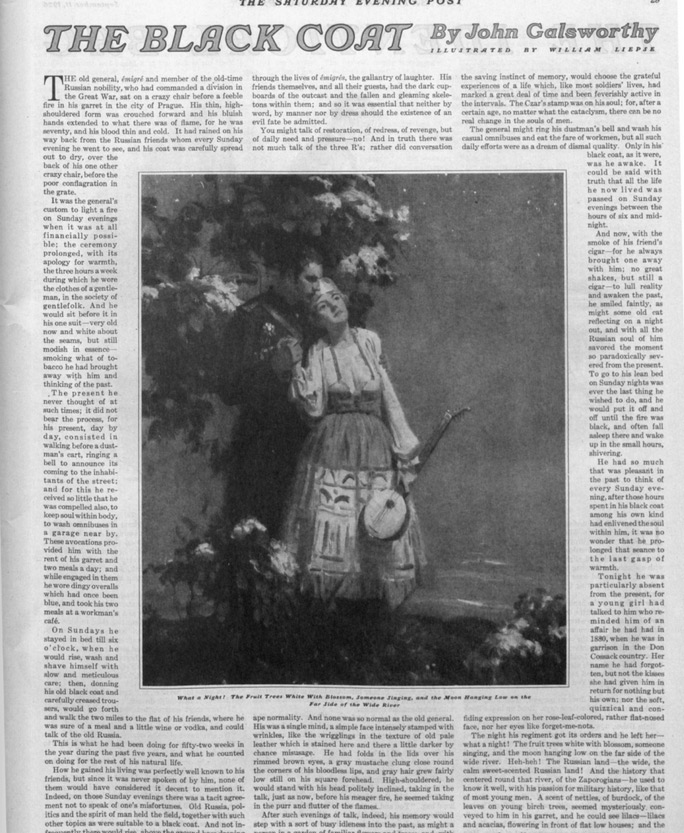
Why Steinbeck Almost Didn’t Win the Nobel Prize
After the release of The Winter of Our Discontent in 1961, it occurred to the Swedish Academy that — after a drought of important fiction — perhaps John Steinbeck might still have a glorious summer ahead of him as a major candidate for the Nobel Prize in Literature. Steinbeck was announced as the Nobel laureate in 1962 — on this day — after what was later discovered to be an unenviable contention: The Swedish Academy didn’t consider any of its literature candidates worthy of the prize.
This inside knowledge wasn’t available at the time, of course. The Academy keeps its records of candidates and discussion private for 50 years. In 2012, the documents from 1962 were made public, and they revealed that Steinbeck was actually chosen out of necessity for a winner rather than enthusiastic acclaim from the committee. The Swedish Academy announced, on October 25, 1962, that it was awarding the prize to Steinbeck “for his realistic and imaginative writings, combining as they do sympathetic humour and keen social perception.” But, according to Svenska Dagbladet, committee member Henry Olssen had written of the choices, “There aren’t any obvious candidates for the Nobel Prize, and the prize committee is in an unenviable situation.” British authors Lawrence Durrell and Robert Graves were among the other candidates.
Despite accusations that Steinbeck’s work amounts to “tenth-rate philosophizing,” his novels and essays are still read widely in American classrooms. Sprawling novels such as The Grapes of Wrath and East of Eden and shorter studies of humanity like Of Mice and Men occupy the American consciousness with authentic tropes of our past.
Though Steinbeck never wrote fiction for The Saturday Evening Post, his last published piece, a 1966 essay called “America and the Americans,” was a cultural indictment as well as a unique celebration of the American people that appeared in the pages of the Post. The editor’s foreword to the piece warned: “The Grapes of Wrath roused a storm of controversy because of its strongly proletarian sympathies,” but the essay that followed was less in Steinbeck’s leftist tradition than it was in his tradition of “keen social perception.”
Steinbeck’s essay reads, even in 2017, as an apt analysis of America’s issues with affluence, racial tensions, and a new search for meaning. “America and the Americans” delivers Steinbeck’s ability to dissect family and culture across generations to diagnose 20th — and maybe 21st — century problems. “Even in our so-called virtues we are intemperate,” he writes, “…We are able to believe that our Government is weak, stupid, overbearing, dishonest, and inefficient, and at the same time we are deeply convinced that it is the best Government in the world, and we would like to impose it upon everyone else.”
His critique of uniquely American attitudes and paradoxes seems to support the Academy’s reasons for awarding him the highest honor in literature, even if the Swedish committee was initially apprehensive at their choice.
Steinbeck delivered an acceptance speech for his award in 1962, giving his take on “the nature and direction of literature” and offering his signature view of humanity’s needs and threats. He died in 1968, two years after “America and the Americans.”
Ironically, after leaving the world with a scathing critique of consumerism and excess, his heirs continue to wage multimillion-dollar lawsuits against one another to profit from his estate. Of course, endless litigation is as American now as migrant farming was during the Great Depression. Steinbeck’s legacy was one of a historian as well as an admonisher, out to save us from ourselves: “Could it be that below the level of thought, our people sense the danger of the swarming, crowding invasion of America by Americans?”
News of the Week: Classic Rock, Campaign Bumper Stickers, and Christmas in October
Cleveland Rocks
For some reason, I thought that Yes was already in the Rock and Roll Hall of Fame, but while they’ve been nominated before, they’ve never made it. Maybe this year will be different, as they’re on the list of the 2017 nominees. Other nominees are Bad Brains, Joan Baez, The Cars, Chic, Depeche Mode, ELO, The J. Geils Band, Janet Jackson, Jane’s Addiction, Journey, Chaka Khan, Kraftwerk, MC5, Pearl Jam, Tupac Shakur, Steppenwolf, Joe Tex, and The Zombies. This is Chic’s 11th nomination!
You can help decide who gets into the Hall by going to the official site and making your choices. Voting ends on December 5.
In related news, The Nobel Prize academy can’t find Rock and Roll Hall of Fame inductee and new Nobel Prize for Literature winner Bob Dylan. If it helps, tomorrow he’s going to be performing at the WinStar World Casino and Resort in Thackerville, Oklahoma.
Au H2O in ’64
CBS Sunday Morning had an interesting segment this week: campaign bumper stickers. The first ones were actually made out of metal. The stickers arrived in the 1940s.
RIP Eddie Applegate
2016 is turning into the “who died from The Patty Duke Show this week?” year. In March, we saw the passing of Patty Duke, and then in May her co-star William Schallert died. Now Eddie Applegate has passed away.
Applegate played Patty Lane’s boyfriend Richard Harrison on the sitcom that ran from 1963 to 1966. He also appeared in TV shows like Gunsmoke, The Lucy Show, The Many Loves of Dobie Gillis, Daktari, and Nancy, as well as the 2010 movie Easy A. He died Monday at the age of 81.
October Books
Some new fall books you might be interested in:
The New York Times Book of the Dead, edited by William McDonald. This happy little volume contains 320 obituaries from the newspaper, along with access to 10,000 more on a special website.
A Torch Kept Lit, edited by James Rosen. Speaking of famous dead people, here’s a collection of eulogies written by William F. Buckley Jr. Included are remembrances of Ronald Reagan, Elvis Presley, John Lennon, Winston Churchill, Martin Luther King Jr., and Truman Capote.
The Age of Daredevils, by Michael Clarkson. A history of the many people who tried to go over Niagara Falls in a barrel early in the 20th century.
Ghostland: An American History in Haunted Places, by Colin Dickey. A travelogue of places in the U.S. that are supposedly haunted, with lots of historical information about each place. Just in time for Halloween.
Happy Hallo … I mean Merry Christmas!
Here we are, ten days before Halloween, and they’re already running Christmas commercials. I saw this one on Tuesday night:
In a few years we’ll come home after watching the Fourth of July fireworks and Frosty the Snowman will be on TV.
Starburst? Seriously?
I refuse to believe that Starburst is the most popular Halloween candy in my state of Massachusetts.
But that’s what this map from Influenster says. They did a state-by-state survey of Halloween candy and Starburst rules The Bay State. I have not eaten a Starburst in 25 years and I can’t remember the last time I saw anyone eating/buying/talking about them (though to be honest, I don’t really keep track of other people’s candy purchases). I’ll take Reese’s Peanut Butter Cups.
Survey reveals America's favorite Halloween candy by state; candy corn is “candy of choice” in most number of states https://t.co/W412Peno3D pic.twitter.com/8DYPsMf8OH
— ABC News (@ABC) October 18, 2016
Who the heck is eating all that candy corn? I mean, come on.
This Week in History: Noah Webster Born (October 16, 1758)
Have you ever used Webster’s Dictionary? This is the guy to thank.
This Week in History: New York World’s Fair Closes (October 17, 1965)
The fair was open for two six-month runs in 1964 and 1965. Some of the buildings are still standing, if in poor condition, and you can see the Unisphere every year when the U.S. Open is played at Flushing Meadows, New York.
This Week in History: Cuba Embargo Begins (October 19, 1960)
President Obama has eased aspects of the embargo, and now you can get Cuban rum and cigars again!
National Nut Day
Saturday is National Nut Day.
A couple of years ago, I made a batch of spiced nuts that was well-received by my family during the holidays. Unfortunately, I can’t remember the recipe and can’t find it online, so how about this spiced nuts recipe from Emeril Lagasse? Here’s a chocolate zucchini bread recipe that includes chopped nuts, and here’s one for dark chocolate bark with roasted almonds and seeds.
I would have included a recipe for fruitcake, but that’s a Christmas thing and it’s still Halloween time. Even though they’re already playing Christmas commercials. Before Halloween.
Next Week’s Holidays and Events
Mother-in-Law Day (October 23)
Come on, you can put aside all of those jokes for one day.
Bill Murray receives the Mark Twain Prize for American Humor (October 23)
The Kennedy Center ceremony will be telecast on PBS at 9 p.m. Eastern on October 28 (check local listings). Here’s a piece by Saturday Evening Post Archive Director Jeff Nilsson on the surprising and familiar Twain.
Navy Day (October 27)
The day was chosen because October 27 is President Theodore Roosevelt’s birthday, though some want to change it to October 13.
Famous Midlife Career Changers
Changing careers in your 30s, 40s, 50s, or even 60s can seem daunting or downright foolish to some. But for a Nobel Prize winner, a legendary female comic, and more, risky—and often multiple—midlife job swaps led to their success.
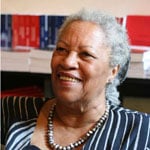
Toni Morrison
The Pulitzer Prize-winning author of Beloved and the first black woman to receive the Nobel Prize in Literature, Morrison started her professional career as an English professor in Texas, and then taught in Washington, D.C. In her 30s, she moved to New York to become an editor at Random House (first working on textbooks and then moving on to a senior editor position). She published her first novel, The Bluest Eye, at age 40.

John Grisham
Though he’s spent most of his adult life writing best-selling legal thrillers such as Sycamore Row and The Pelican Brief, Grisham spent the first part of his life as a lawyer and political figure. He published his first book, A Time To Kill, at 33, but the 5,000 copies printed received little-to-no recognition. His big break came four years later when he sold the film rights to his second novel The Firm to Paramount Pictures, before it was even published.
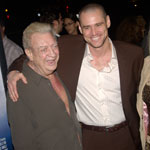
Rodney Dangerfield
Salesman Jacob Cohen had been moonlighting as a standup comic since his early 20s. He finally “got some respect” after his debut performance—under stage name Rodney Dangerfield (left)—on The Ed Sullivan Show at age 46. After long-awaited success, he began acting in his 50s and opened Dangerfield’s Comedy Club, whose stage welcomed little-known comics such as Jerry Seinfeld, Roseanne Barr, and Jim Carrey (right).

Kathryn Joosten
The two-time Emmy Award-winning actress decided to take acting classes at the Steppenwolf Theatre in Chicago in her 40s while she was working full-time as a psychiatric nurse. Joosten moved all the way to Buena Vista, Florida, for her first acting gig as a Walt Disney World performer.

Harland Sanders
Before he convinced the world that 11 is the prime number for a “finger lickin’ good” spice blend, the honorary Kentucky colonel was the ultimate career changer. Army mule-tender, railroad worker, and gas station operator were just a few jobs he held before buying a restaurant in his 40s. There he perfected his Kentucky Fried Chicken, but Sanders really got cooking at age 65 when he was put out of business and turned his recipe into a franchise.
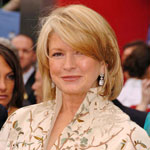
Martha Stewart
Although the homemaking mogul has experienced some legal trouble, Martha Stewart’s career-changing power is inspiring: The former model turned stockbroker in her 20s, and then homemaker to caterer in her 30s. After her catering company was established, she wrote her first book (on entertaining) and began selling her first line of home-goods in her 40s. Nearing and into her 50s, the famous merchandiser became a TV show host, an editor-in-chief, and the billionaire CEO of Martha Stewart Living Omnimedia Inc.
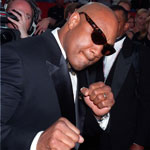
George Foreman
The boxer-turned-minister made a heavyweight comeback winning the world championship at 45—after a 10-year hiatus. Following his win, Foreman was asked to endorse several products including the Lean Mean Grilling Machine (which he helped develop) and Meineke Car Care Centers. Since his midlife victory, Foreman has become an entrepreneur launching a line of cleaning products, shoes for diabetics, a restaurant franchise, and more, and he continues to preach at the church he founded in 1980.

Al Franken
After the former Saturday Night Live producer, writer, and cast member left the sketch comedy show, Al Franken went on to write three books of political satire that hit No. 1 on the New York Times Best Seller list. And he moved to radio, hosting a progressive talk show on Air America. In 2007, Franken (in his late 50s) chose to leave talk radio to pursue (and later win) a U.S. Senate seat. Franken is up for re-election this year.

Ronald Reagan
Another actor turned to politics, Ronald Reagan, is the oldest of our mid-life career changers, having been inaugurated at the age of 69. However, the 40th president of the United States took his first step from Hollywood limelight into the political spotlight in his early 50s when he became governor of California.
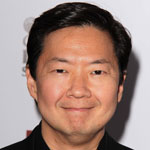
Ken Jeong
For comedic actor (and doctor) Ken Jeong, laughter won out over medicine. Jeong was a practicing physician performing medical checkups by day and standup routines by night in the early half of his life. He became a full-time actor in his late 30s when, oddly enough, he landed a role playing a doctor in the Judd Apatow film Knocked Up.
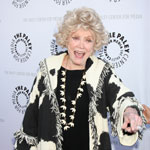
Phyllis Diller
Legendary comedian, actor, and author Phyllis Diller quit her day job at age 37 to pursue standup before she had even performed her first comedy routine on stage. Two years after she handed in her notice, Diller appeared on The Tonight Show and became America’s first female comedienne on tour.